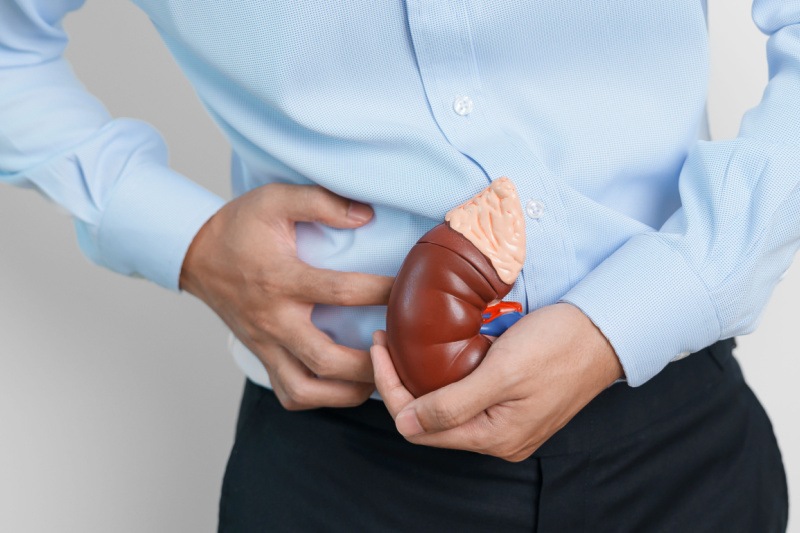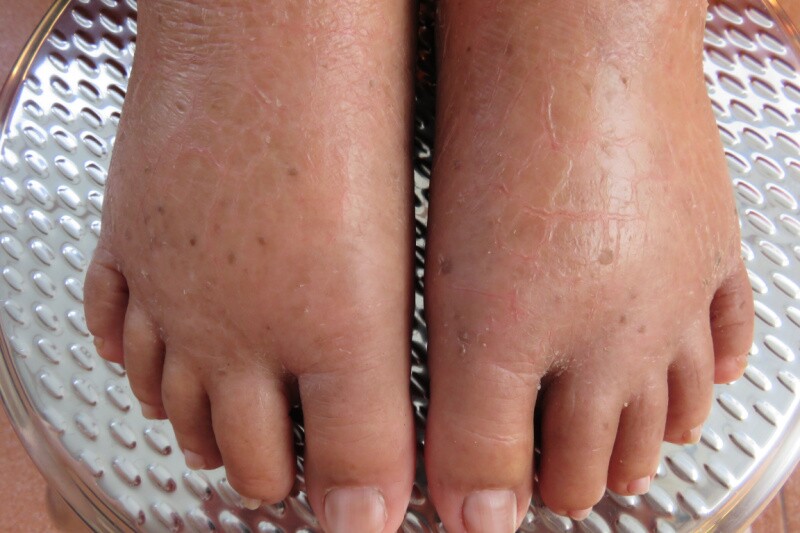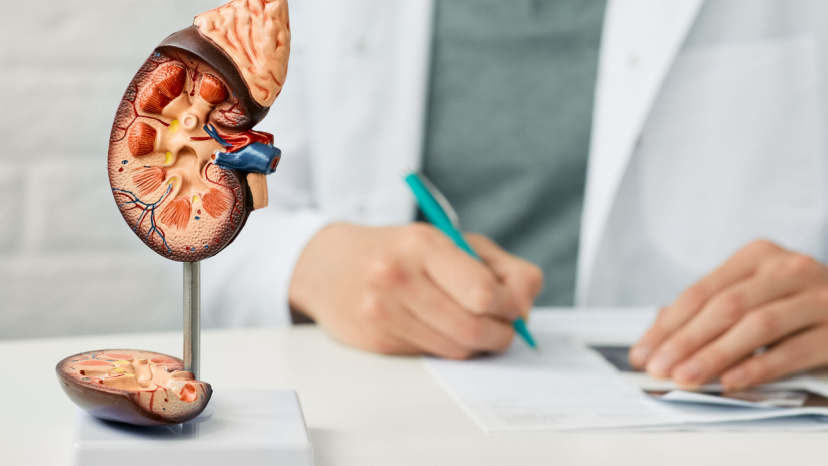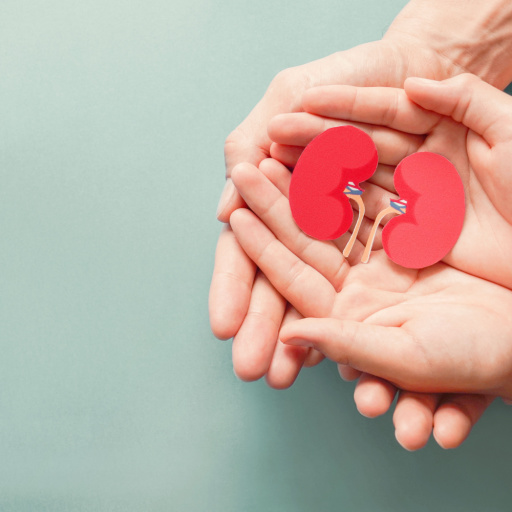Kidneys are bean-shaped organs that are situated under your ribcage. Their most vital task is to flush out toxins from your body. Kidneys filter your blood and flush out waste products in the form of urine. However, when kidneys don’t work properly, it can lead to the accumulation of waste products, leading to a serious condition known as kidney failure.
What you need to know:
- What is kidney failure?
- What happens when kidney failure starts?
- Kidney failure symptoms
- Kidney failure causes
- Diagnosis and tests
- Prevention
What is kidney failure?
Kidney or renal failure is when both or one of your kidneys stops functioning normally. Sometimes, kidney failure can be temporary and develop quickly (acute), or it can be a long-term condition that worsens gradually. Kidney failure is the most advanced stage of kidney disease, and it can be life-threatening if not treated immediately.
Kidneys help your body get rid of toxins and filter your blood. When your kidneys stop functioning properly, waste products get stored in your body, leading to severe sickness. While anyone can be affected by kidney failure, you are at a much higher risk of developing it if you are over 60 years of age or have:
- Diabetes and hypertension (high blood pressure)
- Pre-existing heart conditions
- A family history of kidney diseases
- An abnormal kidney structure
- A long history of taking pain relievers, like NSAIDs (non-steroidal anti-inflammatory drugs)
What happens when kidney failure starts?

Kidney disease progresses through various stages, characterized by the estimated glomerular filtration rate (eGFR), which measures kidney function.
Here are the various stages of kidney disease:
Stage I: With an eGFR above 90 but below 100, kidneys show mild damage but retain normal function.
Stage II: eGFR ranges between 60 and 89, indicating more significant kidney damage than Stage I, yet the kidneys still perform adequately.
Stage III: This stage sees eGFR levels between 30 and 59, signaling either mild or severe deterioration in kidney function.
Stage IV: At this point, eGFR falls between 15 and 29, denoting a severe decline in kidney function.
Stage V: The most critical stage, with an eGFR below 15, means the kidneys are completely damaged.
Understanding these stages is crucial for early kidney disease detection and management and maintaining optimal kidney health.
Kidney failure symptoms
 Here are some of the common kidney failure symptoms that you might experience:
Here are some of the common kidney failure symptoms that you might experience:
- Extreme fatigue
- Nausea and vomiting
- Swelling in your hand and face
- Excess urination
- Dry and itchy skin
- Poor appetite
- Muscle cramps
- Confusion and trouble focusing
Kidney failure causes
Here are some of the common causes of kidney failure:
- Uncontrolled high blood pressure levels
- Severe dehydration
- Obstruction in your urinary tract
- Untreated conditions like heart or liver disease.
Diagnosis and tests
If your doctor thinks that you have a kidney failure risk, you will be required to take medical tests, including:
- Blood tests to evaluate how effectively your kidneys eliminate waste from your bloodstream;
- Urine tests to assess kidney function by examining specific substances in your urine, such as protein or blood;
- Imaging tests to visually assess the kidneys and surrounding structures, helping to spot any irregularities or obstructions.
Prevention
Adopting certain healthy habits can slow the progression of kidney failure. They are:
- Regularly check your estimated glomerular filtration rate (eGFR).
- Maintain blood sugar and pressure levels within a normal range, especially if you have diabetes.
- Refrain from using tobacco products.
- Limit intake of foods high in protein and sodium.
While the preventive measures can help you avoid kidney failure, consult a medical practitioner immediately for an effective treatment plan if you experience any of the symptoms we discussed above.
Stay tuned to the Activ Living Community. Keep up to date with the latest health tips and trends through expert videos, podcasts, articles, and much more in nutrition, fitness, mindfulness, and lifestyle conditions like Asthma, Blood Pressure, Cholesterol, and Diabetes. Activ Living ke saath sahi sehat ki shuruaat ABHIkaro.
You may also be interested in the following blogs:
Popular Searches
How to lower blood pressure | Fruits good for liver | Unhealthy foods | Ragi Benefits | Basal Metabolic Rate | Acupressure points for High Blood Pressure | Ayurvedic medicine for blood pressure | How to control cholesterol at home | Homeopathy for Asthma | Biological Age | Home remedies for TB | Natural beta blockers | Negative effects of internet | Types of walking | Blood pressure calculator | Blood sugar calculator | BMI Calculator





 1800-270-7000
1800-270-7000








Good article